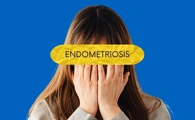

According to WHO criteria, the recommended sexual abstinence period to optimize chances of pregnancy is 2–7 days.
That said, for assisted reproduction treatments, an abstinence period of 2–5 days is generally recommended to improve semen quality.
How does sexual abstinence affect sperm quality?
In general, the relationship can be summarized as follows:
-
During a prolonged period of sexual abstinence, sperm motility and vitality tend to be worse.
-
During a short period of sexual abstinence, sperm concentration is notably reduced.
Although longer periods of sexual abstinence are often thought to increase sperm concentration, this does not confer an advantage, since a very high sperm count can significantly reduce motility.
As a result, when trying to conceive naturally, sperm may have greater difficulty reaching the egg.
Likewise, extending abstinence has been shown to increase sperm DNA fragmentation.
The consequences of increased DNA fragmentation during fertility treatment can include lower fertilization rates and a reduced blastocyst rate by the end of the cycle.
By contrast, when the period of sexual abstinence is shorter than recommended, DNA fragmentation decreases, which can be beneficial.
As you can see, sexual intercourse does not harm sperm quality—if anything, it supports it. If you’re trying to conceive naturally, don’t worry that a brief period of abstinence will undermine your chances of pregnancy.
Although daily intercourse during the fertile window yields the highest pregnancy rates, every-other-day intercourse during that window produces similar results.
Book a free consultationDo you have any questions or need more information?
At Fertility Madrid, we specialise in treatments such as egg donation, in vitro fertilisation and artificial insemination, among others.
Please do not hesitate to contact our professionals at our fertility clinic and they will answer all your questions without obligation.




